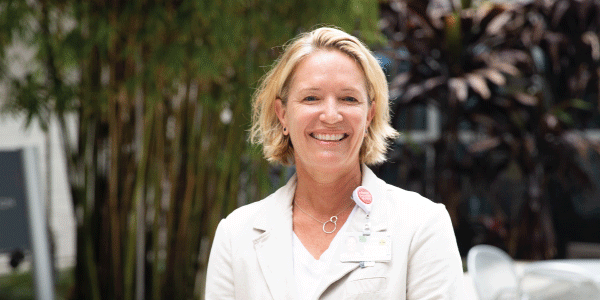Closing the Gap
The Florida Department of Health recently awarded a grant of $2.4 million to Orlando Health to fund a pilot program through the Closing the Gap: Pilot Programs to Reduce Racial and Ethnic Disparities in Severe Maternal Morbidity through Telehealth in Duval and Orange Counties initiative.
The inaugural program was designed to connect Black, Indigenous and other underserved and low- income mothers in Orange County to accessible prenatal and postpartum services.
Achievements over the course of the pilot program ensured the renewal of this grant over the next three years, providing Orlando Health with resources to continue expanding this program to aid more mothers in need.
Severe maternal morbidity (SMM) includes unexpected outcomes of labor and delivery that result in significant long or short-term effects to women’s health. In recent years, the SMM rate has continued to increase in the United States with noticeable racial and ethnic disparities. These gaps are observed in Orange County, where the SMM rate is nearly three times higher in the non-Hispanic Black population compared to that observed in the non-Hispanic White population. Inequities in access to healthcare, presence of biases and delays in identification and treatment all contribute to the widening gap.
Nine community partners included in the pilot program – Second Harvest Food Bank, The Midwife Bus, Healthy Start, Certain Counseling, Center for Change, SALT, Hebni, Commonsense Childbirth and the Holden Heights Front Porch Community — extended its reach and helped to increase access to care for vulnerable populations by providing services such as access to food and nutrition education, midwifery care, mental and behavioral counseling services and more.
In the first year of this program, Orlando Health and community partners were able to recruit 1,255 patients, exceeding the goal of 1,000. Initial screenings helped to determine different social determinants of health, mental health and other needs that may be affecting a patient’s overall wellness. Team members were then able to assess each patient’s needs, connect with them through the telehealth platform, and provide counseling, resources and referrals.
The pilot year saw many promising outcomes, including the enrollment of 70% of our patients at the time of delivery and prenatal encounters, and retaining the vast majority of those patients into postpartum treatment. Additionally, 100% of enrolled patients in need received medical and telehealth communication devices, greatly improving their ability to monitor their health.
With the resources made accessible through this grant, Orlando Health is able to address SMM and other pregnancy complications for prenatal and postpartum patients – helping to reduce health disparities, increase access to care and reduce severe maternal morbidity in Black and Indigenous pregnant and postpartum women.













